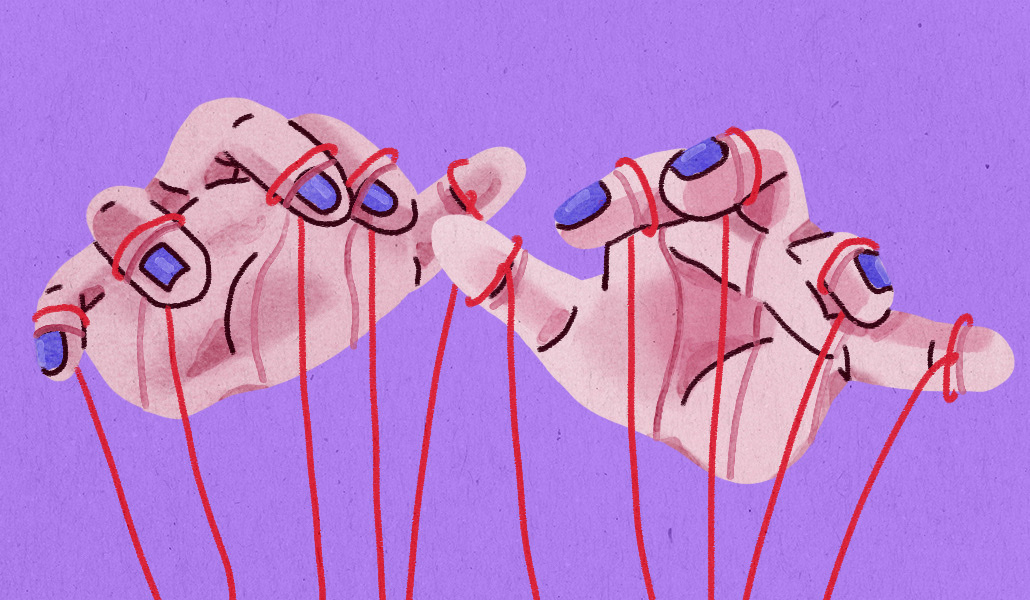‘They’re threatened by you’: Why toxic work relationships persist

This article is one of a six-part editorial series that will examine the importance of work relationships and how social dynamics are evolving between coworkers, peers, bosses, families, and clients, in the hybrid era, and amid the rise of artificial intelligence. More from the series →
“The way that she would handle conflict and deal with situations that arose was completely like a toddler — stomping feet, crossing arms, cursing, yelling, turning beet red, that sort of situation.”
“They’re threatened by you, criticize you, micromanage, there’s a lack of appreciation, they’re defensive.”
“It was this miserable experience of having to deal with somebody who resented being there.”
“You’re just waiting for the next altercation.”
That’s how some workers have described to WorkLife former bosses and coworkers who were toxic.
Your relationships at work are a huge part of your life — so what happens when you get stuck in a toxic relationship with someone you work with? Most people feel they have few options for addressing this behavior, especially when it comes from higher-ups.
“Unfortunately we live in a world where office politics, toxic relationships are happening, and they will always be happening in every workplace,” said Renata Junkova, a career and executive coach.
When faced with toxic behaviors or situations, almost half (49%) of workers at tech companies said they don’t do or say anything, according to a survey of over 1,000 respondents from Talent MLS and Culture Amp. They have little faith that things will change, with nearly the same amount believing their companies will remain toxic in the future.
A key reason is that a lot of toxicity comes from the top, with respondents citing leadership and senior management being most likely to be toxic in their workplaces, that survey found.
Christie Zwahlen, voice and activist in residence at venture studio JukeStrat, recently wrote about her experience with toxic employees in the nonprofit sector, which she believes is a unique industry in the way it tolerates such staff, driven by a “charity mentality” rather than focus on actual business outcomes.
“There’s this type of person in a nonprofit setting who doesn’t do their job well, makes other people’s lives miserable, but their work is centered around this mission that is in some way for the public good, and so it ends up absolving them from doing the nasty things that they do in the workplace,”
She was in a toxic relationship with a former boss who was miserable. “She hated her life. She hated her job. She hated everyone around her, and she made the office this miserable place to be, despite that it had this overwhelmingly positive mission to do good work in the world.”
Despite numerous attempts going to HR and to make formal complaints, nothing was done. She believed her boss’s poor attitude stemmed from a promotion opportunity she didn’t end up receiving. “That made her really angry and resentful towards the institution — and also me personally,” said Zwahlen.
Zwahlen and her colleagues took a rather interesting route – they worked to change the tone and culture of their department internally, so much so that the toxic boss found it unbearably pleasant, leaving her as the odd one out.
“Everyone was friendly and happy to be there and pitching in and she became the odd person out and eventually left on her own,” said Zwahlen.
But it’s not always so easy to get a toxic coworker to leave on their own. Instead, they’ll often stay while those affected by their behavior start to leave.
Carla (who did not give her real name and wished to remain anonymous) remembers a toxic boss she had working at a cosmetics store who routinely put her and other staff down and made the workplace unbearable. She had no guidance on how to report this behavior, leading her to actually find an HR rep on Linkedin to document the situation, to which she received no response, and later ended up quitting.
“I worked in corporate environments before throughout my life and you know, there seems to be a lot better systems in place in a corporate environment,” she said.
But there’s rarely a perfect way to approach and remedy these situations, leaving many employees to simply do nothing, or hope the toxic coworker or boss will leave on their own, like Zwahlen’s did.
However, there is one key step you can take to protect your energy when faced with toxicity – emotional distancing. Emotional distancing entails disconnecting from another person’s emotions and ensuring you aren’t impacted by their personal feelings, Junkova said.
It’s a tricky task to do, but looks something like this: by observing their behavior “like an explorer would observe an animal or pretend that you are some type of anthropologist observing and studying jerks,” Renata wrote in a Linkedin post on the topic in 2022.
Once you’re emotionally distanced from them, you may be in a position to honestly communicate the problem with them in a direct though non-confrontational way. Ultimately though, toxicity isn’t something that’s easy to fix, and it’s a key reason people leave their organizations.
A toxic corporate culture is 10 times more powerful than compensation in predicting a company’s turnover rate compared to others in its industry, according to research from MIT’s Sloan School of Management. Toxic cultures were the biggest factor pushing employees to switch jobs during the great resignation, according to that report.
Nikki Wilkinson had nearly eight years of experience working in a toxic environment as a secondary school teacher before leaving on her own.
Her boss, who she believed to be a narcissist, showed favoritism to some while making others’ lives unbearable, she said. “It was a horrible work environment, he would chastise you in front of the student, in front of other members of staff,” she said. “But he was somebody in a respectable, responsible position, and I just felt like what he said went,” she said.
A final blow-up from her boss led her and her coworkers to eventually end up quitting together, and today she works as a health and wellness coach.
“What kept me going was the love of the children and also my team, like we were all in it together,” she said.

